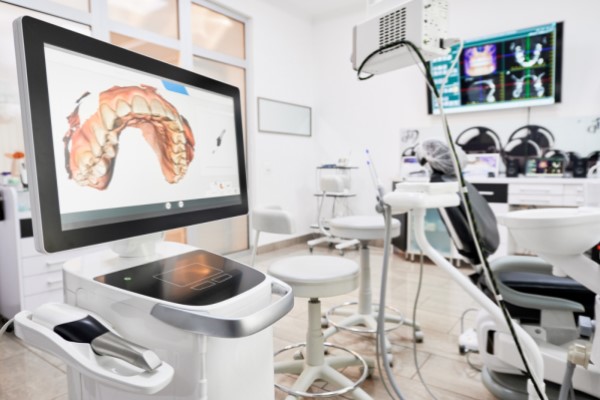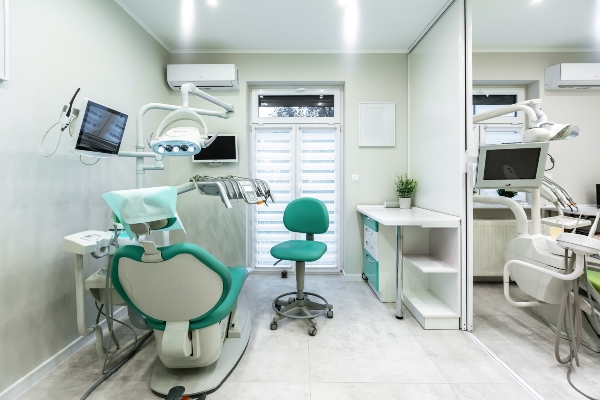Why Are Pediatric Dental X-Rays Necessary?

Pediatric dental x-rays are an essential part of your child's dental care. They provide valuable information about your child's teeth, gums, and jaw health that cannot be seen with a visual examination. Let's explore why dental X-rays are necessary and how they help keep your child's mouth healthy.
The purpose of X-rays
X-rays are a noninvasive tool dentists use to help diagnose and treat many different dental conditions. X-rays give dentists a detailed picture of a patient's teeth, bones, and jaw structure. This information allows dentists to make more informed decisions about treatment plans for their patients.
X-rays can also detect cavities, bone abnormalities, impacted teeth, and infections. X-rays can show if there is enough space between the teeth for braces or other orthodontic treatments. They can also help dentists determine if wisdom teeth will need to be removed.
For pediatric patients, x-rays are especially important. Children's mouths are constantly changing and developing, so regular dental checkups are essential for identifying any problems early on. Dental X-rays can help identify tooth decay in baby teeth, which may not be visible to the naked eye. Early detection of decay helps to prevent more serious problems down the road. X-rays can also reveal developmental issues that may require further attention, such as jaw misalignment or impacted teeth.
What happens during X-rays
When a dental X-ray is performed, the patient is typically asked to bite down on a piece of film or a small piece of plastic that contains the x-ray-sensitive material. Once the film is in place, the dentist or dental hygienist will take a few moments to position the X-ray machine to point at the area of the mouth being examined. The X-ray will then be activated, and a low dose of radiation is used to capture the image of the teeth and gums.
The image will then be developed, and the dentist or hygienist can view the image in order to diagnose any underlying issues. The dentist may also use a magnifying glass in order to get a closer look at the image. It is important to note that radiation exposure from dental X-rays is extremely low, making them a safe procedure for children.
Depending on your child's dentist's preference, they may request additional images such as bitewing or panoramic X-rays. Bitewing X-rays allow for a more detailed view of the upper and lower back teeth, while panoramic X-rays provide an overview of all teeth in one image.
When X-rays are needed
Pediatric dental X-rays are necessary for many reasons. Generally, x-rays are needed when a child has dental problems that cannot be seen with a physical exam. This can include cavities, impacted teeth, tooth growth and development, and infections.
To accurately diagnose and treat these issues, x-rays provide an invaluable look into the child's mouth. They can detect any abnormalities that are not visible to the naked eye, including those below the gum line or inside the roots of the teeth. X-rays also help to identify signs of decay, infection, or cysts that may be causing pain or discomfort for the child.
X-rays are usually taken every 6-18 months, depending on the child's oral health and development. Generally, children need more frequent X-rays if they have a high risk of developing cavities or other issues, such as a history of cavities or if they are undergoing orthodontic treatment.
Overall, pediatric dental X-rays are essential to maintaining good oral health in children. Regular X-rays help to detect any problems early on and allow for appropriate treatment that can help ensure long-term oral health.
Next steps after X-rays
After the dental X-rays, your dentist can view the images and identify any issues needing attention. Your dentist may recommend additional treatments, such as fillings, crowns, or sealants, to correct any problems identified. In addition, your dentist may suggest regular follow-up visits to monitor the development of your child's teeth.
Regular dental checkups and cleanings are important for children to maintain their oral health. During these appointments, your dentist can examine your child's mouth and detect potential problems. Your dentist may also provide preventative care, such as fluoride treatments or dental sealants, to help protect your child's teeth from cavities.
It is important to remember that X-rays are only one tool used to diagnose potential problems and maintain your child's oral health. Regular exams and cleanings are essential for promoting healthy teeth and gums. It is important to establish a relationship with a dentist that you trust so that they can help your child get the best possible dental care.
Request an appointment here: https://www.hvkidsmiles.com or call Hudson Valley Pediatric Dentistry at (845) 363-4177 for an appointment in our Middletown office.
Check out what others are saying about our dental services on Yelp: Pediatric Dental X-Rays in Middletown, NY.
Recent Posts
Emergency pediatric dentists are crucial in swiftly addressing conditions that immediately threaten your child's oral health. These situations, whether they stem from a sudden incident or gradually develop physical symptoms, can catch parents and children off guard. Let us delve into five compelling reasons why you should contact our office without delay if they occur.An…
It is stressful to watch your child go through a dental emergency. But how do you know when to take them to an emergency pediatric dentist? Prompt diagnosis and treatment can alleviate their pain and prevent long-term damage. Here are some signs that indicate it is time to get your child the professional care they…
An emergency pediatric dentist is trained to treat childhood dental injuries. Childhood dental emergencies are stressful for parents, but being prepared can help put them at ease. Here is a look at some of the most frequent childhood dental emergencies and what parents should do while they are waiting to see an emergency pediatric dentist.Also…
No one wants to experience a dental emergency, and children especially do not often know what to do in such a situation, so knowing which emergency pediatric dentist near you can assist if something goes wrong is essential. Caregivers should try not to scramble at the last minute for this information. Ideally, they should prepare…


